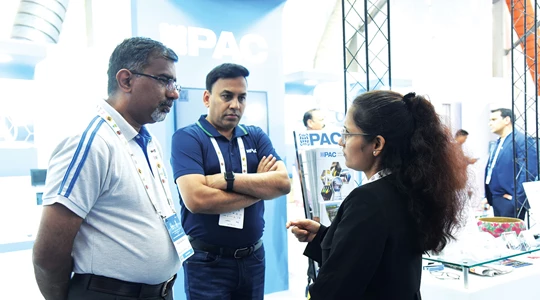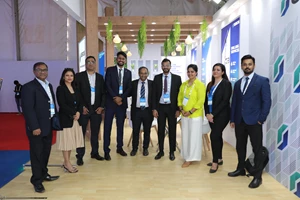GE Vernova unveils new AI-based software to advance industrial sustainability
GE Vernova announced the release of Proficy for Sustainability Insights, a new software solution designed to operationalise manufacturers’ goals toward sustainability, while helping maximise productivity and profitability.
By integrating operational and sustainability data, the artificial intelligence (AI) based software can help industrial companies use resources more efficiently and effectively across a plant or entire enterprise, as well as manage climate metrics required for regulatory compliance.
“Continued digitisation is critical to operationalize industrial sustainability goals to help reduce costs, mitigate risk and improve resilience. Proficy for Sustainability Insights software can help deliver visibility into sustainability progress with persona-based dashboards for faster, more targeted troubleshooting, which will allow operations leaders, frontline managers, and operators to have clearer visibility into key drivers affecting performance,” said Richard Kenedi, General Manager for GE Vernova’s Proficy Software and Services.
Decreasing Energy & Other Resource Usage
As an example, an automotive Tier 1 manufacturer in Europe recently used Proficy software to achieve 18% energy savings on its factory heating systems. The company looked to leverage their existing Proficy plant-floor SCADA with the analytics and dashboard innovation to optimise the heating and cooling in its many energy-intensive production facilities. The enhanced solution optimises system setpoints based on outside air temperatures. Additionally, Proficy analytics capabilities identified a problem in the heating system control related to response to temperature setpoints as well as a problem with valves not closing correctly.
One of the software’s key features is its ability to help reduce costs by monitoring electricity, natural gas, water, steam, and other utilities consumption data. Analytics can continuously detect excess or unnecessary usage, variability, and other waste that would otherwise go unnoticed. Additionally, Proficy for Sustainability Insights can help calculate benchmarks for each unique configuration of process, product SKU, and plant to understand current performance relative to expected consumption rates or best demonstrated performance.
Operationalising Sustainability in Production Operations Context
The software helps solve the problem of providing process context needed to optimize resource utilization, increasing collaboration between operations and sustainability teams and operationalising environmental sustainability goals. This can help decrease energy and other utility costs by modeling and optimising usage in the context of daily operations events and priorities, along with detecting previously unrecognised patterns.
“For a sustainability solution to be effective for industry, it must converge sustainability with operational excellence and digitization, ensuring that not only are energy consumption and raw material resources being optimised, but that plants maximise productivity, performance KPIs, and ultimately profitability,” according to Craig Resnick, Vice President, ARC Advisory Group.
“Proficy for Sustainability Insights provides this sustainability, operations, and digitisation convergence by combining the proven Proficy software portfolio spanning the real-time plant floor, analytics and OT data management along with GE Vernova’s expertise in energy to operationalize and optimise sustainable manufacturing and reduce resource consumption, carbon emissions, and utilities spend. This can maximise productivity and profitability while simultaneously progressing each customer’s journey toward achieving sustainability, ESG and net zero goals,” adds Resnick.
Proficy for Sustainability Insights can help enterprises integrate and manage sustainability performance and production key performance indicators (KPI) together, producing more holistic optimisations and creating visibility to trade-offs and co-benefits that can reduce environmental impacts and costs. By translating the impact of day-to-day activities to Scope 1 and Scope 2 carbon emissions, water usage, or energy efficiency, manufacturers can begin to manage these as KPIs – just like quality, productivity, and throughput. Operations leaders can have insights for decision-making and planning, while operators and frontline leaders can manage priorities amid changing operating conditions.
KEEPING THE ENERGY INDUSTRY CONNECTED
Subscribe to our newsletter and get the best of Energy Connects directly to your inbox each week.
By subscribing, you agree to the processing of your personal data by dmg events as described in the Privacy Policy.
More technology news

ADNOC deploys AIQ’s world-first RoboWell AI solution in offshore operations

ADNOC and e& to build the energy industry’s largest private 5G wireless network

SLB and TotalEnergies announce a 10-year partnership for next-generation digital solutions

Baker Hughes secures multi-year agreement with Woodside Energy for Australian LNG support

AIQ and Halliburton’s Landmark announce Global iEnergy agreement for RoboWell solution

SLB OneSubsea awarded contract by Equinor for groundbreaking all-electric subsea project

Harnessing the Earth’s heat: US DOE and Google step up geothermal investments

DNV to set standards for crucial CO2 flow metre traceability and accuracy in CCUS

Viridien selected for major seismic imaging project by Groupement Berkine

Hitachi Energy doubles clean energy investment with $4.5b funding by 2027
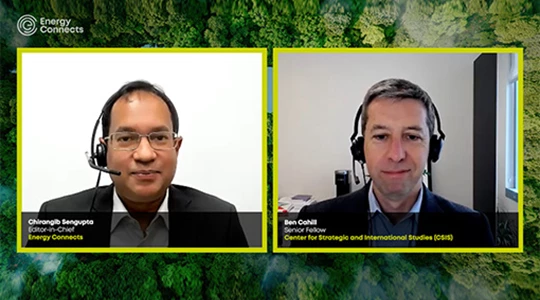
CSIS: long-term LNG demand to reshape global export capacity growth
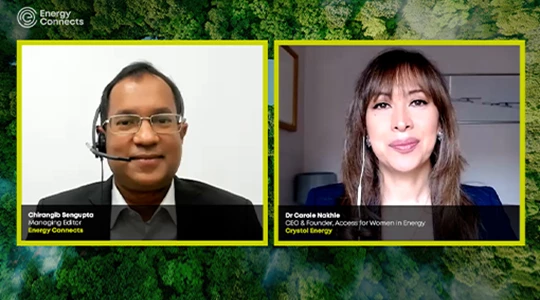
More women in energy vital to the industry’s success
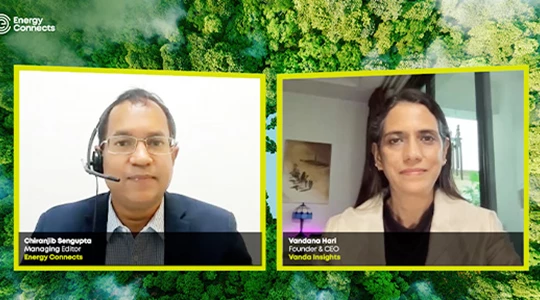
India’s energy sector presents lucrative opportunities for global companies
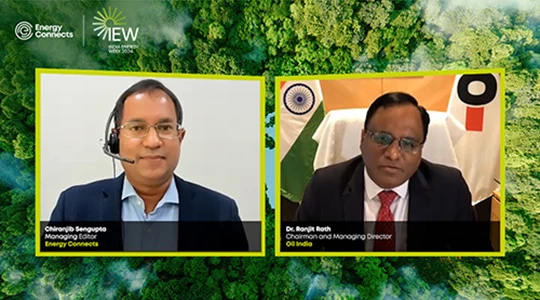
Oil India charts the course to ambitious energy growth

Maritime sector is stepping up to the challenges of decarbonisation
Partner content

Navigating the trading seas: exploring the significance of benchmarks

Back to the Future(s): the best commodities benchmarks are still physically settled

Ebara Elliott Energy offers a range of products for a sustainable energy economy
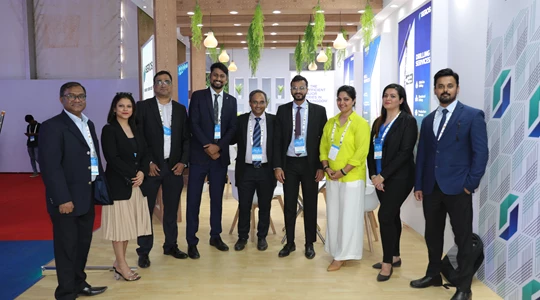
Essar outlines how its CBM contribution is bolstering for India’s energy landscape
